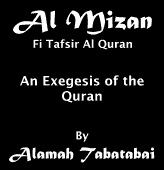
|
| . |
Reading through the history of human thought, it is found that inference which man employs in his intellectual and practical life is mainly divided into deduction and induction. Each of which is distinct in nature and procedure.
In deduction, the conclusion never surpasses the premises; the conclusion is either less than or equal to what is asserted in the premises. Thus, the conclusion is necessarily true if its premises are true; the conclusion, in deduction, follows from its premises by virtue of the principle of non-contradiction.
But, in induction, the conclusion has more in it than what is presented in the premises. The conclusion is not inferred deductively. The procedure in induction is contrary to that made in syllogism. The latter moves from general to particular while the former moves from particular to general. Such move from particular to general cannot have the principle of non-contradiction as its basis, as we can assume the premises to be true and the conclusion false without falling into contradiction. Hence, the principle of non-contradiction does not justify inductive conclusions but leads to a gap when proceeding from particular to general.
In this book, we try to present a reformulation of the theory of knowledge in a scientific, philosophical and objective manner based on the theory of probability so as to fill the gap in the intellectual march of man.
Professor As-Sadr tries in the first chapters of the book to present a critical exposition of rationalism represented in Aristotelian logic based on induction. The Aristotelian logic proves inefficient in filling the gap. Professor As-Sadr moves on to a thorough exposition of the empirical theory with its different trends and its method in bridging the gap. Further, he points out the inefficiency of such logic, being unable to present a substantial explanation that can embrace the inductive proof.
The rest of the book tackles the grounds and principles of the theory of probability with a reformulation of it. Professor As-Sadr successfully presents the theory as a basis for inductive proof. Finally, the eminent Muslim jurist tries to display the domains of human knowledge based on deduction and tries to interpret such knowledge in the same manner as that based on induction. Hence, he crowned his great efforts, sound thinking and broadmindedness in proving through clear evidence that the logical grounds of all scientific inference derived from observation and experiment are the same logical grounds proving the Maker of this universe; a universe abounding in signs of wisdom and sagacity, his inference is inductive by nature and in its implementation of the general way required for the inductive proof in its two phases.
With this logical proof, man faces two confusing alternatives: either to reject the scientific inference as a whole or to accept it and give the inductive inference proving the Maker the same weight as the scientific one.
Through such an objective, scientific method, Professor As-Sadr proves that science and faith are interrelated in their logical and inductive grounds. Hence, we can never separate between both of them in light of the logical standpoint of induction.
Hence, the eminent professor sets the logical rules or empirical proof on the existence of God after expounding the logical correlation between scientific inference and the inductive method to reveal the signs of wisdom and sagacity, hence, the existence of the Maker, We can say that the Muslim thinker, Mohammed As-Sadr, in his book "The logical Foundations of Induction", opens a new horizon breaking the barriers between the modern scientific method and the postulates of the cultural history to the Muslim thinkers, Professor As-Sadr probed deep into the world of research, mastering his tools, armed with natural science. The professor refuted the pretext with another; the proof with another, enjoying a profound understanding of the western thinking.
"The logical Foundations of Induction" has, thus, crowned all the professor's efforts in the field of intellectual creativity. Professor As-Sadr is considered one of the few thinkers who probed deep into this sophisticated scientific and philosophical domain tackling one of the most serious problems in the philosophy of science and the contemporary scientific method.
Regrettably, the author, though an eminent thinker with authentic, creative concepts and with an invaluable method covering scientific, cultural and religious values, has never enjoyed the glamour he deserves. This book, though one of the author's greatest studies, has never enjoyed due attention whether through translation to other languages or research and studies conducted on such a prolific author's creative work.
Finally, trying to introduce the book of such a great jurist and eminent thinker as Professor As-Sadr, may God bless him, is no easy task. It is an onerous task as the Professor enjoyed broadmindedness and was highly acquainted, with scientific, juristic and ideological knowledge. I hesitated a lot due to the prominent stand of Professor As-Sadr and the grandeur of this book, scientifically and philosophically. I only accepted this honourable task after the insistence of the publisher and those concerned in this sphere. I accepted such a great responsibility which is considered an honour. I ask Almighty God to help me fulfil such a task and to be up to the responsibility.
Dr. Ghafer Abbass Hagi
Professor of Islamic Economics
Kuwait University
 |
 |
 |
 |
| Multimedia |
 Dua Iftitah (mp3) Dua Iftitah (mp3) Abu Thar Al-Halawaji Abu Thar Al-Halawaji |
| listen download |
 Dua Kumail (video) Dua Kumail (video) Medina Medina |
| watch |
 Dua Tawasul (mp3) Dua Tawasul (mp3) Abu Thar Al-Halawaji Abu Thar Al-Halawaji |
| listen download |
 Ar Rahman (mp3) Ar Rahman (mp3) Abdul Basit Abdul Basit |
| listen download |
 Al Faatiha (mp3) Al Faatiha (mp3) Yasir Al-Filkawi Yasir Al-Filkawi |
| listen download |
 Al Anfaal 41-52 (mp3) Al Anfaal 41-52 (mp3) Yasir Al-Filkawi Yasir Al-Filkawi |
| listen download |
| Copyright © 2003 - 2006, www.IntroducingIslam.org [All Rights Reserved] 1526004127 p u sh i sa |
